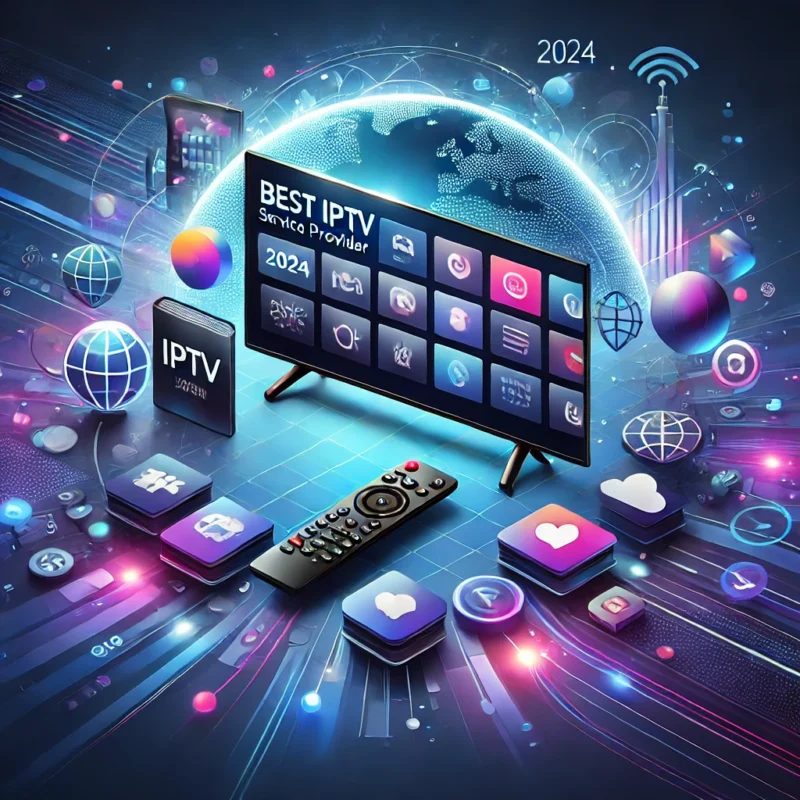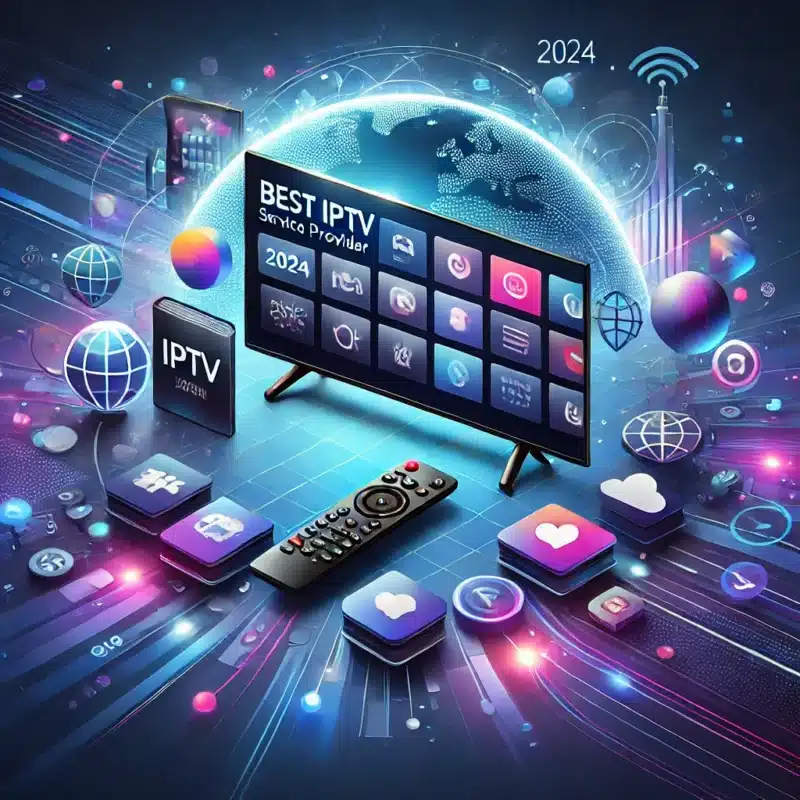In an era where digital entertainment reigns supreme, Internet Protocol Television (IPTV) has emerged as a game-changing technology that’s reshaping how we consume television content. This comprehensive guide will delve into the world of IPTV, exploring its features, benefits, and impact on the future of home entertainment.
I. Introduction
IPTV, short for Internet Protocol Television, is a cutting-edge method of delivering television content over Internet Protocol (IP) networks. Unlike traditional broadcast, satellite, or cable TV formats, IPTV uses the same internet technology that delivers websites and online videos to stream television programming directly to viewers’ devices.
The concept of IPTV dates back to the mid-1990s, but it wasn’t until the mid-2000s that the technology began to gain traction. As internet speeds increased and video compression techniques improved, IPTV has grown from a niche service to a mainstream entertainment option. Today, it offers viewers unprecedented flexibility, a vast array of content choices, and superior picture quality, making it an increasingly popular alternative to conventional TV services.
II. How IPTV Works
At its core, IPTV works by breaking down television programming into small packets of data. These packets are transmitted over the internet and reassembled on the viewer’s device, whether it’s a smart TV, computer, or mobile device. This process allows for a more efficient and flexible delivery of content compared to traditional broadcasting methods.
Unlike cable or satellite TV, which broadcast all channels simultaneously, IPTV only sends the channel the user requests. This on-demand approach not only saves bandwidth but also allows for a more personalized viewing experience. To use IPTV, viewers typically need a high-speed internet connection, a compatible device, and a subscription to an IPTV service provider.
III. Key Features of IPTV
IPTV boasts a range of features that set it apart from traditional television services:
1. HD and 4K Streaming: Many IPTV services offer high-definition and even 4K Ultra HD content, providing viewers with crystal-clear picture quality.
2. On-Demand Content: IPTV allows users to access a vast library of on-demand content, including movies, TV shows, and past episodes of current series.
3. Catch-Up TV: This feature enables viewers to watch programs that have already aired, typically within a certain timeframe after the original broadcast.
4. Multi-Device Compatibility: IPTV services often work across various devices, from smart TVs and streaming boxes to smartphones and tablets.
5. Electronic Program Guides: Interactive guides make it easy for viewers to navigate through channels and schedule recordings.
6. DVR Functionality: Many IPTV services include cloud-based DVR features, allowing users to record their favorite shows for later viewing.
7. Parental Controls: These tools help parents manage what content their children can access, ensuring a family-friendly viewing experience.
IV. Popular IPTV Service Providers
The IPTV market has seen significant growth, with numerous providers entering the space. Some of the top IPTV services include:
1. Smart IPTV: Known for its user-friendly interface and wide device compatibility.
2. Tobigo Tv: Offers a diverse range of international channels.
3. Liveplayer IPTV: Popular for its sports content and HD streaming quality.
When choosing an IPTV provider, it’s essential to compare features, pricing, and content offerings. Some providers specialize in specific types of content or cater to particular regions, so research is key to finding the best fit for your needs.
V. IPTV Device Compatibility
One of IPTV’s greatest strengths is its versatility when it comes to device compatibility. Users can access IPTV services on:
1. Smart TVs: Many modern smart TVs have built-in IPTV apps or the ability to download them.
2. Streaming Devices: Popular options include Amazon Fire TV Stick, Roku, and Apple TV.
3. Mobile Devices: Both iOS and Android devices can run IPTV apps for on-the-go viewing.
4. Computers: Most IPTV services offer web-based players or downloadable applications for PCs and Macs.
5. Gaming Consoles: Some IPTV services are compatible with PlayStation and Xbox consoles.
This wide range of compatibility ensures that viewers can enjoy their favorite content on virtually any screen, at home or on the move.
VI. Content Offerings
IPTV services typically offer a vast array of content to cater to diverse viewer preferences:
1. International Channels: Many IPTV providers offer channels from around the world, making it easier for expatriates to stay connected with their home countries or for language learners to immerse themselves in foreign content.
2. Sports Packages: Sports enthusiasts can access dedicated sports channels and packages, often including live events and exclusive content.
3. Movie and TV Show Libraries: On-demand libraries rival those of popular streaming services, offering thousands of movies and TV series.
4. Niche Content: From educational programming and documentaries to specialized content for kids, IPTV services often cater to specific interests and age groups.
VII. IPTV vs. Other Streaming Services
When comparing IPTV to traditional cable, satellite TV, and over-the-top (OTT) streaming platforms, several key differences emerge:
1. Content Delivery: IPTV offers a hybrid of live TV and on-demand content, whereas OTT platforms like Netflix focus primarily on on-demand viewing.
2. Channel Selection: IPTV often provides a wider range of live channels compared to most OTT services.
3. Cost: IPTV can be more cost-effective than cable or satellite TV, especially for viewers interested in international content.
4. Flexibility: Unlike traditional TV services, IPTV doesn’t typically require long-term contracts and offers more customizable packages.
VIII. Choosing the Right IPTV Service
Selecting the ideal IPTV service involves considering several factors:
1. Content Offerings: Ensure the service provides the channels and on-demand content you’re interested in.
2. Pricing: Compare subscription costs and look for hidden fees.
3. Device Compatibility: Check if the service works with your preferred devices.
4. Streaming Quality: Look for providers offering HD or 4K streaming if picture quality is a priority.
5. User Interface: A well-designed, easy-to-navigate interface can greatly enhance your viewing experience.
Many IPTV providers offer free trials, which are an excellent way to test the service before committing. Additionally, reading user reviews and professional comparisons can provide valuable insights into the reliability and quality of different services.
IX. IPTV Troubleshooting and Support
While IPTV offers numerous benefits, users may occasionally encounter issues. Common problems include:
1. Buffering: This can occur due to slow internet speeds or server issues.
2. Connection Problems: Sometimes caused by network configuration issues or service outages.
3. Device Compatibility: Certain devices may not support all features of an IPTV service.
To ensure optimal performance:
1. Maintain a stable, high-speed internet connection.
2. Use a wired connection when possible for more reliable streaming.
3. Keep your IPTV app and devices updated.
4. Clear cache and cookies regularly on your streaming devices.
Quality customer support is crucial when choosing an IPTV provider. Look for services that offer responsive customer service through multiple channels, such as live chat, email, and phone support.
X. The Future of IPTV
As technology continues to evolve, so too does IPTV. Several emerging trends are shaping the future of this technology:
1. AI Recommendations: Machine learning algorithms are improving content recommendations, creating more personalized viewing experiences.
2. Blockchain Integration: Some providers are exploring blockchain technology to enhance security and enable new payment models.
3. Virtual and Augmented Reality: The integration of VR and AR technologies could revolutionize how we consume television content.
4. 5G Impact: The rollout of 5G networks promises to deliver faster, more reliable streaming, potentially expanding IPTV’s reach and capabilities.
5. Integration with Smart Home Technology: IPTV services may soon seamlessly integrate with other smart home devices, creating a more connected entertainment experience.
XI. Legal Considerations and IPTV
While IPTV itself is legal, some providers operate in a legal grey area. It’s crucial for users to choose legitimate, licensed IPTV services to avoid copyright infringement issues. Some considerations include:
1. Content Licensing: Reputable IPTV providers have proper licensing agreements for the content they offer.
2. Regional Restrictions: Some content may be geo-restricted due to licensing agreements.
3. VPN Use: While VPNs can bypass geographical restrictions, their use may violate some providers’ terms of service.
XII. Conclusion
IPTV represents a significant leap forward in how we consume television content. Its flexibility, vast content offerings, and integration with modern technology make it an attractive option for viewers seeking an alternative to traditional TV services. As internet infrastructure continues to improve and IPTV technology evolves, we can expect this platform to play an increasingly central role in the future of home entertainment.
Whether you’re a sports enthusiast, a movie buff, or simply looking for a more flexible TV viewing experience, IPTV offers something for everyone. As you explore your options, remember to prioritize legitimate providers, consider your specific content needs, and take advantage of free trials to find the service that best fits your lifestyle.
The world of television is changing, and IPTV is at the forefront of this revolution. By embracing this technology, viewers can enjoy a more personalized, flexible, and content-rich entertainment experience that truly represents the future of television streaming.

